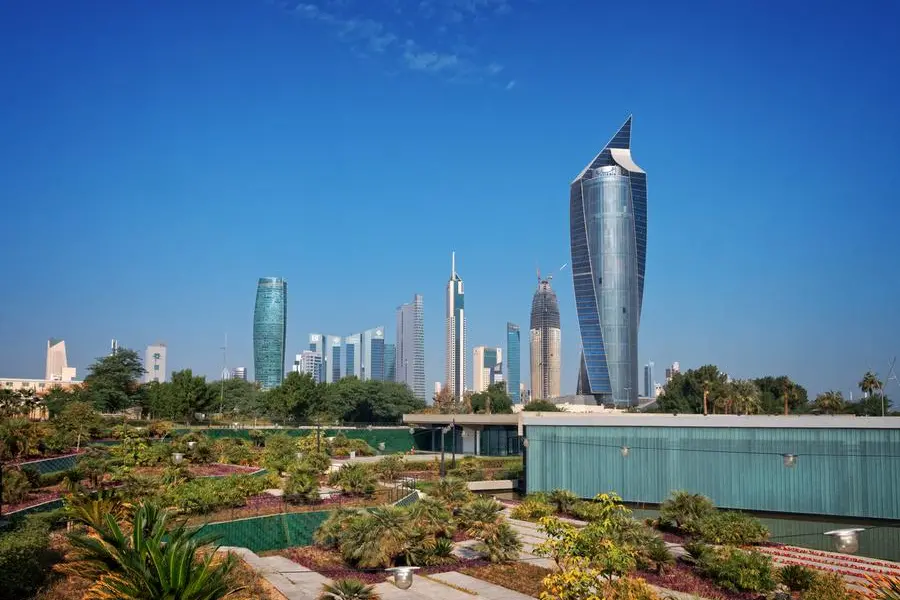PHOTO
KUWAIT-- The year 2024 ended with the State of Kuwait giving further boost to women empowerment, driven by instructions of His Highness the Amir Sheikh Meshal Al-Ahmad Al-Jaber Al-Sabah to promote women rights and pay further attention to their potentials.
The State of Kuwait is at the fore of countries believing that no progress could be achieved without contribution of women, which has impacts on development plans and legislative system in the Gulf nation. George Town Institute for Women Peace and Security said State of Kuwait improved from 123 place to 61st, out of 177 countries, in terms of women empowerment. Kuwait also improved 10 points regarding gender gap.
Kuwait included women in government decision-making and plans in harmony with Article 29 of the Constitution, New Kuwait 2035 Vision, the fifth UN Sustainable Development Goal regarding equality among gender.
Article 29 of the Constitution of Kuwait states: "All people are equal in human dignity, and in public rights and duties before the law, without distinction as to race, origin, language or religion." The development plans guarantee women rights and provide them with decent life, as well as expanding women role in social, economic and political domains, as well as addressing climate changeآ’s impacts on people in general and women in specific.
Women make up more than 58 percent of the workforce in Kuwait. They represent 48 percent in the private sector and 60 percent in the public sector.
Twenty-eight percent of women occupied executive positions - Ministers, Undersecretary and Assistant Undersecretary. They made up 47 percent of senior and executive positions in the Ministry of Defense and 43 percent in the military engineering sector.
Four women were appointed managers in the Public Prosecution, and there are 88 public prosectors and 19 judges. The Amiri Guards has 19 women for the first time in Kuwait's history, and there are over 900 female police personnel.
The foreign ministry has 144 female diplomats, or 22 percent of total diplomats. Women occupied 54 percent of total workforce in Kuwait Petroleum Corporation (KPC).
Women make up 41 percent of executive posts in the Central Bank of Kuwait (CBK), 35 percent in banks and 26 percent in the banking sectorآ’s executive jobs. The State of Kuwait boosts its support to right of women, making it the first in the Gulf to adopt an initiative to empower women in the private sector, which was in line with a 2010 agreement with the UN Women, the agency dedicated to gender equality and the empowerment of women.
Kuwait also implemented a regional project, known as "Waraqati", which aims at promote women rights and empower them legally coupled with providing legal protection to ensure their actrive contributions in all fields.
The Ministry of Social Affairs and Labor sponsored many projects that support families, like helping them setting up their own businesses to provide steady income as well as offering easy loans and organizing permanent and seasonal exhibitions for their products.
These projects contributed to ending social allowances to 214 beneficiaries because they manage their own businesses and became economically independent.
The private sector also adopts initiatives, which involved move than 40 companies, to support women, including Kuwait platform to empower women economically.
The State ratififed international agreements, generally aim at ending all forms of discrimination, trafficking and using women in prostitution, in addition to children rights and fighting all means that use children in prostitution. Kuwait is closely cooperating with the UN Economic and Social Commission for Western Asia (ESCWA) to develop capabilities of the Kuwaiti women to carry out proactive development role.
Kuwait established, in December 2023, the national committee for woman, peace and security, as well as Kuwait Woman Award, a committee for women and enterpreneurship affiliated with the Council of Ministers in 2021.
In 2015, the Gulf State set May 16 as Kuwait Woman Day. It was in this day in 2005 when the National Assembly, or parliament, passed a bill that granted females political rights, enabling them to vote and run in elections.
The current government include three female ministers: Minister of Social Affairs, Labor, Family and Childhood Affairs Dr. Amthal Al-Huwailah, Minister of Public Works Dr. Nora Al-Mashaan and Minister of Finance and Minister of State for Economic and Investment Affairs Nora Al-Fassam.
There are several legislations that support women in the State of Kuwait, including a 2020 law that protect women from family violence, the 1956 law on right of education, a 2010 law on rights of the disabled, a 2015 law on protecting women and men from cyber crimes and blackmailing.
A law approved in 2006 established the supreme council for family affairs, which joins hands with civil society to protect families and children. It builds regional and international partnerships on women empowerment.
Kuwait invested in sport infrastructure for women thus increasing their participation on sport events.
The Public Authorit for Sport is working on its 2022-28 strategy to provide courts, fields and gyms for women to boost their capabilities and expertise.
Dr. Reem Al-Shemmeri won the Arab cybersecurity woman award in 2024, and the American Society for Gastrointestinal Endoscopy selected Dr. Asmaa Al-Kanderi as its representative in the Middle East.
The international association for space navitation selected Engineer Lama Al-Uraiman as vice-chairperson of Middle East and Central Asia Committee in recognition of her role in supporting space science and technology, and for winning the association award of young space leaders.
Suad Al-Faqaan and Amina Shah were the first Kuwaiti women competing in water sports of the 2024 Paris olympics. Al-Faqaan came third in the rowing event.The Kuwaiti woman has always been the half of society and has been active contributor to many fields.
All KUNA right are reserved © 2022. Provided by SyndiGate Media Inc. (Syndigate.info).




















